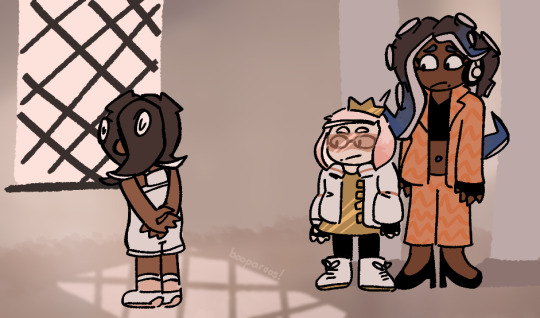#national order
Explore tagged Tumblr posts
Text
the fact that shakespeare was a playwright is sometimes so funny to me. just the concept of the "greatest writer of the English language" being a random 450-year-old entertainer, a 16th cent pop cultural sensation (thanks in large part to puns & dirty jokes & verbiage & a long-running appeal to commoners). and his work was made to be watched not read, but in the classroom teachers just hand us his scripts and say "that's literature"
just...imagine it's 2450 A.D. and English Lit students are regularly going into 100k debt writing postdoc theses on The Simpsons screenplays. the original animation hasn't even been preserved, it's literally just scripts and the occasional SDH subtitles.txt. they've been republished more times than the Bible
#due to the Great Data Decay academics write viciously argumentative articles on which episodes aired in what order#at conferences professors have known to engage in physically violent altercations whilst debating the air date number of household viewers#90% of the couch gags have been lost and there is a billion dollar trade in counterfeit “lost copies”#serious note: i'll be honest i always assumed it was english imperialism that made shakespeare so inescapable in the 19th/20th cent#like his writing should have become obscure at the same level of his contemporaries#but british imperialists needed an ENGLISH LANGUAGE (and BRITISH) writer to venerate#and shakespeare wrote so many damn things that there was a humongous body of work just sitting there waiting to be culturally exploited...#i know it didn't happen like this but i imagine a English Parliament House Committee Member For The Education Of The Masses or something#cartoonishly stumbling over a dusty cobwebbed crate labelled the Complete Works of Shakespeare#and going 'Eureka! this shall make excellent propoganda for fabricating a national identity in a time of great social unrest.#it will be a cornerstone of our elitist educational institutions for centuries to come! long live our decaying empire!'#'what good fortune that this used to be accessible and entertaining to mainstream illiterate audience members...#..but now we can strip that away and make it a difficult & alienating foundation of a Classical Education! just like the latin language :)'#anyway maybe there's no such thing as the 'greatest writer of x language' in ANY language?#maybe there are just different styles and yes levels of expertise and skill but also a high degree of subjectivity#and variance in the way that we as individuals and members of different cultures/time periods experience any work of media#and that's okay! and should be acknowledged!!! and allow us to give ourselves permission to broaden our horizons#and explore the stories of marginalized/underappreciated creators#instead of worshiping the List of Top 10 Best (aka Most Famous) Whatevers Of All Time/A Certain Time Period#anyways things are famous for a reason and that reason has little to do with innate “value”#and much more to do with how it plays into the interests of powerful institutions motivated to influence our shared cultural narratives#so i'm not saying 'stop teaching shakespeare'. but like...maybe classrooms should stop using it as busy work that (by accident or designs)#happens to alienate a large number of students who could otherwise be engaging critically with works that feel more relevant to their world#(by merit of not being 4 centuries old or lacking necessary historical context or requiring untaught translation skills)#and yeah...MAYBE our educational institutions could spend less time/money on shakespeare critical analysis and more on...#...any of thousands of underfunded areas of literary research i literally (pun!) don't know where to begin#oh and p.s. the modern publishing world is in shambles and it would be neat if schoolwork could include modern works?#beautiful complicated socially relevant works of literature are published every year. it's not just the 'classics' that have value#and actually modern publications are probably an easier way for students to learn the basics. since lesson plans don't have to include the#important historical/cultural context many teens need for 20+ year old media (which is older than their entire lived experience fyi)
24K notes
·
View notes
Text
"The Biden Administration last week [early December, 2023] announced it would be seizing patents for drugs and drug manufacturing procedures developed using government money.
A draft of the new law, seen by Reuters, said that the government will consider various factors including whether a medical situation is leading to increased prices of the drug at any given time, or whether only a small section of Americans can afford it.
The new executive order is the first exercise in what is called “march-in-rights” which allows relevant government agencies to redistribute patents if they were generated under government funding. The NIH has long maintained march-in-rights, but previous directors have been unwilling to use them, fearing consequences.
“We’ll make it clear that when drug companies won’t sell taxpayer funded drugs at reasonable prices, we will be prepared to allow other companies to provide those drugs for less,” White House adviser Lael Brainard said on a press call.
But just how much taxpayer money is going toward funding drugs? A research paper from the Insitute for New Economic Thought showed that “NIH funding contributed to research associated with every new drug approved from 2010-2019, totaling $230 billion.”
The authors of the paper continue, writing “NIH funding also produced 22 thousand patents, which provided marketing exclusivity for 27 (8.6%) of the drugs approved [between] 2010-2019.”
How we do drug discovery and production in America has a number of fundamental flaws that have created problems in the health service industry.
It costs billions of dollars and sometimes as many as 5 to 10 years to bring a drug to market in the US, which means that only companies with massive financial muscle can do so with any regularity, and that smaller, more innovative companies can’t compete with these pharma giants.
This also means that if a company can’t recoup that loss, a single failed drug can result in massive disruptions to business. To protect themselves, pharmaceutical companies establish piles of patents on drugs and drug manufacturing procedures. Especially if the drug in question treats a rare or obscure disease, these patents essentially ensure the company has monoselective pricing regimes.
However, if a company can convince the NIH that a particular drug should be considered a public health priority, they can be almost entirely funded by the government, as the research paper showed.
Some market participants, in this case the famous billionaire investor Mark Cuban, have attempted to remedy the issue of drug costs in America by manufacturing generic versions of patented drugs sold for common diseases."
-via Good News Network, December 11, 2023
#united states#us politics#biden administration#executive order#prescription drugs#medical news#healthcare#healthcare access#biden#big pharma#drug prices#public health#nih#national institutes of health#good news#hope
10K notes
·
View notes
Text




Book 2 au: and there was only one bed!! :00
Because of course I just had to do this trope
This is the first and last time they decide to sleep in an inn and they have an unspoken agreement to pretend this never happened
#zutara#zuko#katara#atla#book 2 au#my art#i like to think katara is pretty clingy when sleeping cause she's from the south pole#and she's probably really used to cuddling in order to share body heat to get through the really cold nights#ofc she'd usually be cuddling up with her family and not the banished prince of the fire nation who's also pretending to be her husband#zuko on the other hand is not used to sharing a bed with anyone much less sharing his personal space and cuddling with anyone#but anyways zuko would rather die than admit he didn't mind it as much as he thought he would and that he slept comfortably well that night#to the anon that was just asking about this au this one's for you lolol#i told you i was just about to post something and here it is
1K notes
·
View notes
Text
Two bros, chilling in a hot tub, five feet apart cus they're not gay negative five feet apart because they're working things out...



#legends of avantris#once upon a witchlight#ouaw#ouaw fanart#gideon coal#kremy lecroux#gricko grimgrin#morning frost#torbek#twig toadspring#coalecroux#apolaskiart#you may ask how did we get here from the vine#my answer is that it was the vision itself#Frosty had half the mind to mage hand the door but torbek disuades him for fear of angering kremy#The two are banned from using the tub for a month under Twig's orders#we finally did a coalecroux centered piece apolaski nation!!!
871 notes
·
View notes
Text

#splatoon#splatoon 3#side order#marina splatoon#pearl splatoon#AAAAAH#FOUR DAYS TO GO PEARLINA NATION WHERE ARE YOU#we won
2K notes
·
View notes
Text
The thematic implications of Caitlyn transitioning from solely a sharpshooter, to learning the ropes of hand-to-hand combat, and how it follows her growing distrust in Ambessa. If the weapon is a reflection of mentality, it prefigures Cait's mental expansion - away from narrow-minded thinking and acting from a distance. Instead of tackling from afar, she melds her skills in accuracy and deduction *with* close-up action. This is her power play. "Vision" is cait's strength (as opposed to "Might" and "Guile" and "Sacrifice") and Ambessa qualifies this with the phrase "tunnels in your eyes". Ironically, she trains Caitlyn and literally gives her the tools to pull away from her rifle-mindset. In teaching her how Noxus views strength, she offers her the keys to dismantle it
#dont get me started on how vi represents might and jinx represents guile#and how ALL of them know sacrifice#what does it mean that the three make up Noxus' tenets of strength. does it say something about unity?#does it prefigure the joining of zaun and piltover as nation in order to overcome a greater threat of external military occupation#and also the reconciliation btwn them as people on a personal familial level?#i need 500 hours to unpack this omg#arcane season 2#arcane#caitlyn kiramman#arcane spoilers#jp musings
390 notes
·
View notes
Text
How do y'all think the duffers are going to go about initiating Byler?
I've been thinking about this a lot lately and would love some thoughts on how everyone thinks Byler will progress. This is my opinion on the matter. (PS: this is a very mike centered analysis as I believe his perspective is the most beneficial to the conversation since he is at the center)

Mike is hiding his feelings for Will, but what benefit does this have for those involved? To us, the viewers, we can see the pain Will, El, and Mike experience through this situation. No party is receiving what they truly need to progress their happiness and growth.
El wants a boyfriend who will tell her that he loves her for who she is as a person, not her capabilities. At the heart of this is a need to be understood, but El herself doesn't really know who she is. Her growth is dependent on finding herself without outside influence.

Mike wants a girlfriend to seem/feel 'normal' and cool. He knows who he is but is repressing it. At the heart of this is a need to be desired. Sure, El wants him, but she does not know the truth about Mike. Mike's growth is dependent on someone finding comfort in the real him.

Will wants someone to treat him normal. He knows he's a freak and while he doesn't necessarily try to hide it, he wants the comfort of not being treated differently for it. Will's growth is dependent on the acceptance of those around him.

The existence of a romantic relationship between Mike and El goes against all of this potential growth. Mike idolizes El, never being able to see past her abilities. El is unable to find herself at the cost of being mikes cover. While doing this, he rejects his true self and affection for Will, because he believes he is doing what's right. Simultaneously, Will is left feeling dejected and alone in the disregard of his feelings.
I think Mike has very low self-esteem. It comes with the territory of being a nerdy queer teenager in the 80's. I also, however, believe that when he has enough faith in himself, or the stakes are high enough, he's good at taking charge of a situation. He is selfless, a kind of selfless where you can't always tell he cares for those around him, but he would sacrifice his own comfort and livelihood for the people he loves.
But if Mike is so selfless, why isn't he fixing the situation for everyone involved? Because of one simple fact: He is clueless. He has no idea what he's doing to El or Will.
He may know Will is upset about something while in the Van with him, but that boy has no idea what's going on in Wills head. He might not even realize the painting he got from Will is the one El was talking about in her letter. With everything going on, he probably still thinks will has a girl he likes back up in Cali and this is a completely different painting.

He senses El is upset and won't talk to him, but he thinks it's because she lost to Vecna. He has not even the slightest clue it's partially due to his conditional and untrue love confession. El believes that mike only said he loved her because she finally got her powers back.

Mike thinks he gave El and Will what they wanted. El wanted a love confession? check. Will wanted mike to move on and fix his relationship with El? check. done and done. At least that's what he thinks.

Now that we have motives and perspective out of the way, here's a general idea of how I think the Milkvan-Byler transition will pan out.
We have already established in the show that Will is too selfless to confess, thinking he's saving a perfectly healthy relationship that just so happens to involve the boy he loves and the girl who saved him. There is no way he would break them up on his own, or he would have done that already. The action relies on Mike and El. They both need to respectively decide a breakup is necessary for this to work.
The breakup cannot be prompted by one or the other, it must be prompted by both. Mike cannot be the only one desiring a breakup, because El needs to take her power back and make that decision by herself. At the same time though, El can't be the only one either, as mike needs to accept his feelings on his own and stop being someone he's not. Mike not initiating would also make Will seem like a second option and completely negate Wills growth of being accepted for simply being.
El will have distanced herself from mike tremendously. They may not have broken up officially, but she's realizing Mike is not what she needs right now. She will probably be spending time with Hopper and Joyce training to fight Vecna, and the reminder that that's the only thing mike seems to like about her will only push her more towards her own sense of self. Maybe she still has hope for her and mike, but that is not her focus right now.
While El is distanced, Mike and Will will fall into the same roles they did in season 2. Will will struggle with the supernatural aspects of the plot, while Mike takes care of him and keeps him safe. This will restore Mike and Wills friendship.
Mike simultaneously will realize how much happier he is away from El, because he can't help but act like someone he's not when he's around her. He will also realize the comfort he finds in being relied on by Will. This won't necessarily prompt him into the breakup, as he still believes dating El is the best way he can support her. He might want Will, but he still feels like he can't have him.
I Because of this, El will be the first to initiate, but it will be mutual. I think they will have a long discussion (maybe starting as a fight) about Mikes lies in his speech and the pressure he felt to conform to this relationship. El will share how his actions have not helped the relationship, but instead made them both feel miserable, trapped, and unappreciated. They will realize that the other is not what they need, and though they will both need platonic support through this journey, they just can't benefit each other this way.
While Mike and Will are reconnecting, El will finally notice... everything. The stares, soft voices, comforting, and everything will click. El might need some help understanding though, because even though she did not have a normal childhood, she is still subjected to heteronormativity even if she joined the game late. She will make the connection that that is how she should have been treated, and though they are both boys, I think a sit down with one of the other characters (Johnathan? Hopper? Joyce?) will help her connect the dots.
I think the painting and mikes feelings for Will may become an entirely different discussion later in the season, and this is what will push mike into feeling allowed to want him. The combined acceptance from El, and the implied reciprocation from Will could be the push mike needs for his own self-acceptance.
This will allow Byler to build up in a healthy way where all parties benefit and are able to build even stronger connections with each other. Through honesty, acceptance, and love, all of which have been lacking.

Thank you if you read all of this. Please let me know if you feel like this will go in an entirely different direction in ST5!!!
#byler#stranger things#will byers#mike wheeler#byler endgame#byler nation#byler tumblr#internalized homophobia#will x mike#byler theory#stranger things 5#st5 predictions#st5 speculation#st5#stranger things theory#anti milkvan#guys this took me like 3 hours to get all my thoughts in order#it went by like minutes#adhd time blindness will do that lmao#you're the heart
185 notes
·
View notes
Text
"it's okay for regulus to be really mean to james but it's not okay for james to be even slightly mean to regulus because-" EHHH. WRONG! 🚨
#in order for there to be jegulus peace in the nation (my heart) this particular dynamic is banished from the realm! (my immediate presence)#like...why say this to me...? what did i do to deserve that...?
435 notes
·
View notes
Text

no side order trailer? oh wow i- i need a minute to think about this...
#splatoon#side order#agent 8#pearl splatoon#marina splatoon#EDIT: this is a clone high reference btw!!!#i forgot to color in marinas headphones but i dont even care anymore.#pearlina nation we lost this direct#my art
2K notes
·
View notes
Text

[The Herb Brides] are no one’s. They’re… the Earth’s. [...] And each other’s, sometimes.


Shörmös and Yyrghene 🌸🌾
#pathologic#pathologic 2#herb brides#my beautiful girls. Tendril and Thorn.#if a ginger child can be called Catnip/Oregano so can they but better#some of yous might know them already but. here now... <3#Shörmös pink flowers Yyrghene florets & facepaint as ordered#they're... as married as Herb Brides can be to a woman other than the Earth. Herb Wives if you will#the incidence of lesbian and bi women in the herb brides rank is multiple times the national average#why are you as a woman married to the earth (a woman)🤨#it's very simple. mind your business & don't question them ever.#my ocs#technically they are... i guess every herb bride i've ever drawn counts as an OC but#these two got names...#oc:shörmös#oc:yyrghene#yaaayy#my art
1K notes
·
View notes
Text






In honor of National Hugging Day ♡
#svuedit#law and order svu#bensler#elliot x olivia#olivia benson#elliot stabler#svu#happy national hugging day#my babies#otp#otp: it will always be you and i#chris meoni#mariska hargitay#minestuff
123 notes
·
View notes
Text
Two packages arrived today, so I have a Wealth of new things........
First being........


THE HIM...... Wolfwood plush from @ruporas !!!!
His accessories are all SO cute. He's surprisingly firm to the touch, and his hair is so SO soft... a handsome little lad.... I love him.......

He lives here now with my teru Vash and his friend, Sakura


He came with such lovely extras....... every part of this is so cute.... 😭😭😭 & the extra drawing....... 🥺🥺🥺🥺 oughhhhhh. I Love it.
I'm very much looking forward to the Vash coming out in a few months (I think??) Hehehehe
AND I ALSO GOT..... a fuckin HAUL from @spookynest. Didn't realize how much I ordered until it was in front of me, whoops hflshxmsnd

STICKERS!!!!!! Some freebies, also the card thing on the right that's a thank you card, but he's so handsome... might just put him up on my wall too.... the sparkle stickers r so shiny....... no idea where I want to put them (Sticker Paralysis....) but I enjoy having them either way heheh
And some Posters.......



FMA and CR posters bc they look so good!!! (I haven't actually watched campaign 1 yet but shhhh I know I'll love the twins so I got it anyways 😂) and these trigun posters that I LOVE..........
And then my personal favorite thing from this package.....

This poster 😭😭😭😭😭 bc Wolfwood looks so in love it punches me in the heart. Aughhhh😭😭😭😭😭😭😭
#speculation nation#long post/#pls excuse me putting these in the same post hflshfks i just wanted to present All of them....#so funny that these both came in Today. both orders were placed... months ago?? definitely not at the same time.#but fate said that TODAY i would receive Many items. and they are so Good.....#i also did undress the Wolfwood plush. how could i not. his accessories are so cute. his lil butt is so cute.#i figured i'd save him Some dignity and i wouldnt post his naked pictures on my tumblr dot com...#i already felt bad enough posting them on discord 😂😂 sorry for the disrespect my lad#but i also just rly wanted to check out all the parts + the craftmanship.......#and the butt. lol. it's kinda funny. his butt is so big it was a bit of a struggle to put his pants back on hfkahxms#like i got it of course. it all fits wonderfully. but in the same way as putting on skinny jeans... just had to tug that thang on....#man. i just keep looking at all of these things. i feel like a kid on christmas. WONDERFUL day today. ❤️
72 notes
·
View notes
Text
#NLRB#national labor relations board#republican assholes#maga morons#traitor trump#crooked donald#republican hypocrisy#traitor#resist#republican values#never trump#republican family values#trump’s illegal firings#trump’s executive orders
56 notes
·
View notes
Text


Finished Samwise Gamgee Photocard 💗🌼✨🍃
#i got so many dms on insta asking if ill print it#so naturally as any sane human being would i ordered an actual sample of a photocard holder haha#Samwise Gamgee nation#lotr#lord of the rings#hobbits#the lord of the rings#samwise gamgee#sam gamgee#lotr fanart
2K notes
·
View notes
Text
Every internet fight is a speech fight

THIS WEEKEND (November 8-10), I'll be in TUCSON, AZ: I'm the GUEST OF HONOR at the TUSCON SCIENCE FICTION CONVENTION.

My latest Locus Magazine column is "Hard (Sovereignty) Cases Make Bad (Internet) Law," an attempt to cut through the knots we tie ourselves in when speech and national sovereignty collide online:
https://locusmag.com/2024/11/cory-doctorow-hard-sovereignty-cases-make-bad-internet-law/
This happens all the time. Indeed, the precipitating incident for my writing this column was someone commenting on the short-lived Brazilian court order blocking Twitter, opining that this was purely a matter of national sovereignty, with no speech dimension.
This is just profoundly wrong. Of course any rules about blocking a communications medium will have a free-speech dimension – how could it not? And of course any dispute relating to globe-spanning medium will have a national sovereignty dimension.
How could it not?
So if every internet fight is a speech fight and a sovereignty fight, which side should we root for? Here's my proposal: we should root for human rights.
In 2013, Edward Snowden revealed that the US government was illegally wiretapping the whole world. They were able to do this because the world is dominated by US-based tech giants and they shipped all their data stateside for processing. These tech giants secretly colluded with the NSA to help them effect this illegal surveillance (the "Prism" program) – and then the NSA stabbed them in the back by running another program ("Upstream") where they spied on the tech giants without their knowledge.
After the Snowden revelations, countries around the world enacted "data localization" rules that required any company doing business within their borders to keep their residents' data on domestic servers. Obviously, this has a human rights dimension: keeping your people's data out of the hands of US spy agencies is an important way to defend their privacy rights. which are crucial to their speech rights (you can't speak freely if you're being spied on).
So when the EU, a largely democratic bloc, enacted data localization rules, they were harnessing national soveriegnty in service to human rights.
But the EU isn't the only place that enacted data-localization rules. Russia did the same thing. Once again, there's a strong national sovereignty case for doing this. Even in the 2010s, the US and Russia were hostile toward one another, and that hostility has only ramped up since. Russia didn't want its data stored on NSA-accessible servers for the same reason the USA wouldn't want all its' people's data stored in GRU-accessible servers.
But Russia has a significantly poorer human rights record than either the EU or the USA (note that none of these are paragons of respect for human rights). Russia's data-localization policy was motivated by a combination of legitimate national sovereignty concerns and the illegitimate desire to conduct domestic surveillance in order to identify and harass, jail, torture and murder dissidents.
When you put it this way, it's obvious that national sovereignty is important, but not as important as human rights, and when they come into conflict, we should side with human rights over sovereignty.
Some more examples: Thailand's lesse majeste rules prohibit criticism of their corrupt monarchy. Foreigners who help Thai people circumvent blocks on reportage of royal corruption are violating Thailand's national sovereignty, but they're upholding human rights:
https://www.vox.com/2020/1/24/21075149/king-thailand-maha-vajiralongkorn-facebook-video-tattoos
Saudi law prohibits criticism of the royal family; when foreigners help Saudi women's rights activists evade these prohibitions, we violate Saudi sovereignty, but uphold human rights:
https://www.bbc.com/news/world-middle-east-55467414
In other words, "sovereignty, yes; but human rights even moreso."
Which brings me back to the precipitating incidents for the Locus column: the arrest of billionaire Telegram owner Pavel Durov in France, and the blocking of billionaire Elon Musk's Twitter in Brazil.
How do we make sense of these? Let's start with Durov. We still don't know exactly why the French government arrested him (legal systems descended from the Napoleonic Code are weird). But the arrest was at least partially motivated by a demand that Telegram conform with a French law requiring businesses to have a domestic agent to receive and act on takedown demands.
Not every takedown demand is good. When a lawyer for the Sackler family demanded that I take down criticism of his mass-murdering clients, that was illegitimate. But there is such a thing as a legitimate takedown: leaked financial information, child sex abuse material, nonconsensual pornography, true threats, etc, are all legitimate targets for takedown orders. Of course, it's not that simple. Even if we broadly agree that this stuff shouldn't be online, we don't necessarily agree whether something fits into one of these categories.
This is true even in categories with the brightest lines, like child sex abuse material:
https://www.theguardian.com/technology/2016/sep/09/facebook-reinstates-napalm-girl-photo
And the other categories are far blurrier, like doxing:
https://www.kenklippenstein.com/p/trump-camp-worked-with-musks-x-to
But just because not every takedown is a just one, it doesn't follow that every takedown is unjust. The idea that companies should have domestic agents in the countries where they operate isn't necessarily oppressive. If people who sell hamburgers from a street-corner have to register a designated contact with a regulator, why not someone who operates a telecoms network with 900m global users?
Of course, requirements to have a domestic contact can also be used as a prelude to human rights abuses. Countries that insist on a domestic rep are also implicitly demanding that the company place one of its employees or agents within reach of its police-force.
Just as data localization can be a way to improve human rights (by keeping data out of the hands of another country's lawless spy agencies) or to erode them (by keeping data within reach of your own country's lawless spy agencies), so can a requirement for a local agent be a way to preserve the rule of law (by establishing a conduit for legitimate takedowns) or a way to subvert it (by giving the government hostages they can use as leverage against companies who stick up for their users' rights).
In the case of Durov and Telegram, these issues are especially muddy. Telegram bills itself as an encrypted messaging app, but that's only sort of true. Telegram does not encrypt its group-chats, and even the encryption in its person-to-person messaging facility is hard to use and of dubious quality.
This is relevant because France – among many other governments – has waged a decades-long war against encrypted messaging, which is a wholly illegitimate goal. There is no way to make an encrypted messaging tool that works against bad guys (identity thieves, stalkers, corporate and foreign spies) but not against good guys (cops with legitimate warrants). Any effort to weaken end-to-end encrypted messaging creates broad, significant danger for every user of the affected service, all over the world. What's more, bans on end-to-end encrypted messaging tools can't stand on their own – they also have to include blocks of much of the useful internet, mandatory spyware on computers and mobile devices, and even more app-store-like control over which software you can install:
https://pluralistic.net/2023/03/05/theyre-still-trying-to-ban-cryptography/
So when the French state seizes Durov's person and demands that he establish the (pretty reasonable) minimum national presence needed to coordinate takedown requests, it can seem like this is a case where national sovereignty and human rights are broadly in accord.
But when you consider that Durov operates a (nominally) encrypted messaging tool that bears some resemblance to the kinds of messaging tools the French state has been trying to sabotage for decades, and continues to rail against, the human rights picture gets rather dim.
That is only slightly mitigated by the fact that Telegram's encryption is suspect, difficult to use, and not applied to the vast majority of the communications it serves. So where do we net out on this? In the Locus column, I sum things up this way:
Telegram should have a mechanism to comply with lawful takedown orders; and
those orders should respect human rights and the rule of law; and
Telegram should not backdoor its encryption, even if
the sovereign French state orders it to do so.
Sovereignty, sure, but human rights even moreso.
What about Musk? As with Durov in France, the Brazilian government demanded that Musk appoint a Brazilian representative to handle official takedown requests. Despite a recent bout of democratic backsliding under the previous regime, Brazil's current government is broadly favorable to human rights. There's no indication that Brazil would use an in-country representative as a hostage, and there's nothing intrinsically wrong with requiring foreign firms doing business in your country to have domestic representatives.
Musk's response was typical: a lawless, arrogant attack on the judge who issued the blocking order, including thinly veiled incitements to violence.
The Brazilian state's response was multi-pronged. There was a national blocking order, and a threat to penalize Brazilians who used VPNs to circumvent the block. Both measures have obvious human rights implications. For one thing, the vast majority of Brazilians who use Twitter are engaged in the legitimate exercise of speech, and they were collateral damage in the dispute between Musk and Brazil.
More serious is the prohibition on VPNs, which represents a broad attack on privacy-enhancing technology with implications far beyond the Twitter matter. Worse still, a VPN ban can only be enforced with extremely invasive network surveillance and blocking orders to app stores and ISPs to restrict access to VPN tools. This is wholly disproportionate and illegitimate.
But that wasn't the only tactic the Brazilian state used. Brazilian corporate law is markedly different from US law, with fewer protections for limited liability for business owners. The Brazilian state claimed the right to fine Musk's other companies for Twitter's failure to comply with orders to nominate a domestic representative. Faced with fines against Spacex and Tesla, Musk caved.
In other words, Brazil had a legitimate national sovereignty interest in ordering Twitter to nominate a domestic agent, and they used a mix of somewhat illegitimate tactics (blocking orders), extremely illegitimate tactics (threats against VPN users) and totally legitimate tactics (fining Musk's other companies) to achieve these goals.
As I put it in the column:
Twitter should have a mechanism to comply with lawful takedown orders; and
those orders should respect human rights and the rule of law; and
banning Twitter is bad for the free speech rights of Twitter users in Brazil; and
banning VPNs is bad for all Brazilian internet users; and
it’s hard to see how a Twitter ban will be effective without bans on VPNs.
There's no such thing as an internet policy fight that isn't about national sovereignty and speech, and when the two collide, we should side with human rights over sovereignty. Sovereignty isn't a good unto itself – it's only a good to the extent that is used to promote human rights.
In other words: "Sovereignty, sure, but human rights even moreso."

If you'd like an essay-formatted version of this post to read or share, here's a link to it on pluralistic.net, my surveillance-free, ad-free, tracker-free blog:
https://pluralistic.net/2024/11/06/brazilian-blowout/#sovereignty-sure-but-human-rights-even-moreso

Image: © Tomas Castelazo, www.tomascastelazo.com (modified) https://commons.wikimedia.org/wiki/File:Border_Wall_at_Tijuana_and_San_Diego_Border.jpg
CC BY-SA 4.0 https://creativecommons.org/licenses/by-sa/4.0/
#speech#free speech#free expression#crypto wars#national sovereignty#elon musk#twitter#blocking orders#pavel durov#telegram#lawful interception#snowden#data localization#russia#brazil#france#cybercrime treaty#bernstein#eff#malcolm turnbull#chat control
121 notes
·
View notes
Text
FUCK ANYWAY TOGACHAKO IS CANON IN MY HEART IN MY BLOOD WE ALL KNOW THAT WE DON'T NEED SOMETHING CANON TO SHIPP IT
72 notes
·
View notes